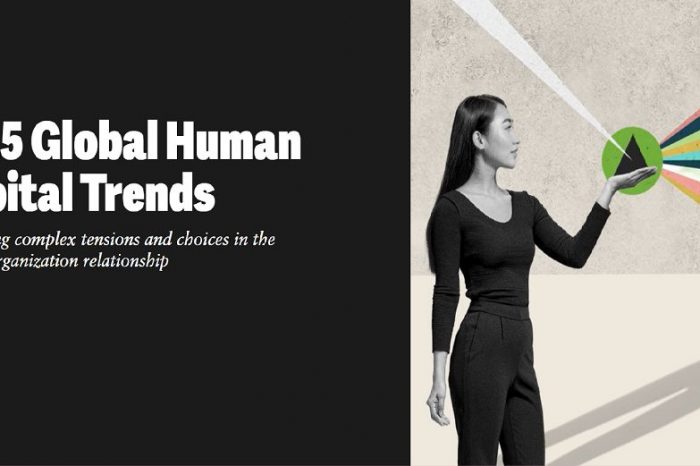Deloitte’s 2021 Global Shared Services and Outsourcing Survey: Shared Services Centers Focus on Strategic Investments to Drive Value

Key takeaways
- Shared services centers (SSCs) are increasingly investing in strategic capabilities to drive business insights and create value for parent organizations.
- Hybrid workplace strategies emerge as a key change for organizations looking to generate increased productivity and reduced costs.
- Organizations are also prioritizing talent by focusing on better employee experiences, building new, innovative virtual talent models and increasing diversity in leadership.
- Global business services (GBS) organizations are leveraging digital enablers, with robotic process automation (RPA), global standard processes and single instance ERP emerging as the top digital enablers identified.
The COVID-19 pandemic has highlighted the importance of generating tangible business value in innovative ways. As companies increasingly rely on global service delivery models to provide higher value at lower cost, companies are investing in the strategic capabilities of SSCs, prioritizing talent and new ways of working, and leveraging digital transformation to find a competitive advantage.
New strategic objectives and capabilities
Deloitte’s “2021 Global Shared Services and Outsourcing Survey” found most organizations reported “standardization and process efficiency” as their top strategic objective for SSCs in 2021, knocking “reducing costs” into the No. 2 spot, followed by “driving business value” at No. 3. Most organizations are achieving the objectives they have laid out: For example, of those identifying standardization and efficiency of processes as a goal, 78% have successfully achieved it. Similarly, of those identifying cost reduction as an objective, 88% had achieved their cost reduction goals.
While more organizations have identified a digital agenda as a goal, there is still room to grow—out of those that identified this objective, only slightly more than half have executed it successfully so far.
Organizations surveyed are developing capabilities to drive insights and provide higher value such as analytics, reporting and digital capabilities, as well as enhancing the customer experience. These shared and GBS constructs are creating an environment where new capabilities can be rapidly adopted to position their customers for success.
Workplace strategies
Overall, new workplace strategies in the wake of the pandemic have emerged as a key difference in this year’s survey. Respondents are planning to adopt a hybrid (73%) or mostly remote (14%) model, with only 9% planning to embrace a primarily brick-and-mortar approach. The survey defines hybrid as being in-office two to three days a week and mostly remote as in-office only a few days a month.
This new approach may provide opportunities for organizations to generate additional cost savings and increased productivity. What remains to be seen is how these workplace strategies will impact work culture, well-being, and future location strategy.
Prioritizing talent
When shifting to a GBS model, organizations have embraced a range of traditional and alternative models for retaining talent. Respondents reported developing a strong culture (77%), emphasizing well-being opportunities and flexible work practices (62%), and continuing improvement and innovation opportunities (62%) as the top approaches to retaining shared services employees. As work patterns have undergone a dramatic shift during the pandemic, about 60% of respondents have adopted job-sharing and flexible work practices, including working from home or other locations, as a key strategy to retain talent.
Interestingly, financial compensation—including both performance-based pay and financial support—dropped below other talent concerns this year. While these remain important, the results suggest that they are now “table stakes” in the fight for talent, and organizations are pursuing other levers to improve and jumpstart new talent strategies.
Incorporating diversity into leadership roles is also increasingly important to success. Of GBS organizations that have successfully achieved three or more SSC objectives, more than 80% have about a third of their leadership team composed of underrepresented minorities and women.
Digital enablers
The survey also found that digital enablers—essentially, digital technologies that improve and optimize the services provided—are critical to how SSCs innovate across functions to deliver cost savings. High-performing GBS organizations that have successfully achieved three or more SSC objectives have adopted digital transformation as a strategic agenda; 72% of those have already successfully implemented RPA, 55% have single-instance ERP, and 53% have adopted cloud solutions. Process and technical complexity were cited by 43% of the respondents as the biggest challenge to automation, while single instance ERP and global standardized processes were identified in the top three as key enablers for these organizations to achieve their objectives. Overall, 70% of respondents who were able to attain greater than 40% savings through RPA had also employed a single-instance ERP. Siloed automations, defining ownership of RPA and scaling were the other major challenges identified to deploying automations.
For additional results from Deloitte’s “Global Shared Services and Outsourcing Survey,” download a copy here.
















